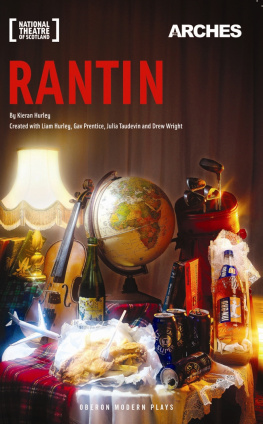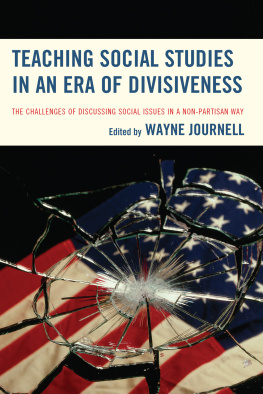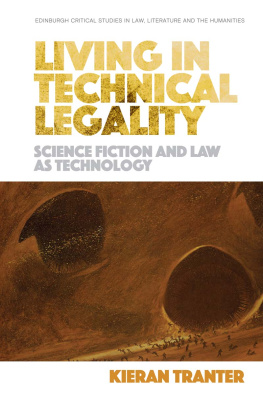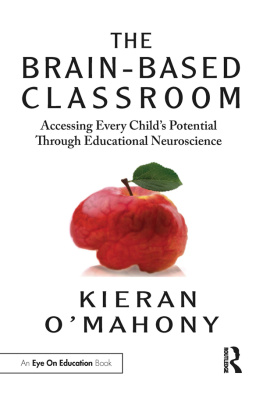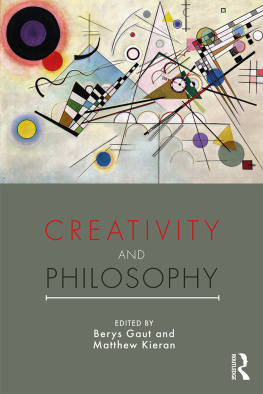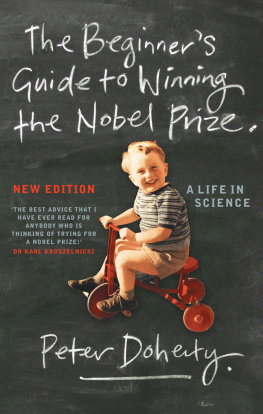Kieran C. O’Doherty - Psychological Studies of Science and Technology
Here you can read online Kieran C. O’Doherty - Psychological Studies of Science and Technology full text of the book (entire story) in english for free. Download pdf and epub, get meaning, cover and reviews about this ebook. year: 2019, publisher: Springer International Publishing, genre: Politics. Description of the work, (preface) as well as reviews are available. Best literature library LitArk.com created for fans of good reading and offers a wide selection of genres:
Romance novel
Science fiction
Adventure
Detective
Science
History
Home and family
Prose
Art
Politics
Computer
Non-fiction
Religion
Business
Children
Humor
Choose a favorite category and find really read worthwhile books. Enjoy immersion in the world of imagination, feel the emotions of the characters or learn something new for yourself, make an fascinating discovery.
- Book:Psychological Studies of Science and Technology
- Author:
- Publisher:Springer International Publishing
- Genre:
- Year:2019
- Rating:5 / 5
- Favourites:Add to favourites
- Your mark:
- 100
- 1
- 2
- 3
- 4
- 5
Psychological Studies of Science and Technology: summary, description and annotation
We offer to read an annotation, description, summary or preface (depends on what the author of the book "Psychological Studies of Science and Technology" wrote himself). If you haven't found the necessary information about the book — write in the comments, we will try to find it.
Psychological Studies of Science and Technology — read online for free the complete book (whole text) full work
Below is the text of the book, divided by pages. System saving the place of the last page read, allows you to conveniently read the book "Psychological Studies of Science and Technology" online for free, without having to search again every time where you left off. Put a bookmark, and you can go to the page where you finished reading at any time.
Font size:
Interval:
Bookmark:

Palgrave Studies in the Theory and History of Psychology publishes scholarly books that use historical and theoretical methods to critically examine the historical development and contemporary status of psychological concepts, methods, research, theories, and interventions. The books in the series are characterised by an emphasis on the concrete particulars of psychologists scientific and professional practices, together with a critical examination of the assumptions that attend their use. These examinations are anchored in clear, accessible descriptions of what psychologists do and believe about their activities. All the books in the series share the general goal of advancing the scientific and professional practices of psychology and psychologists, even as they offer probing and detailed questioning and critical reconstructions of these practices.
Series Editorial Board
Alex Gillespie, London School of Economics and Political Science, UK
Suzanne R. Kirschner, College of the Holy Cross, USA
Annette Mlberger, Universitat Autonoma de Barcelona, Spain
Lisa M. Osbeck, University of West Georgia, USA
Peter Raggatt, James Cook University, Australia
Alexandra Rutherford, York University, Canada
More information about this series at http://www.palgrave.com/gp/series/14576

This Palgrave Macmillan imprint is published by the registered company Springer Nature Switzerland AG
The registered company address is: Gewerbestrasse 11, 6330 Cham, Switzerland
is a graduate student at the University of Kansas. She locates her scholarship at the intersection of decolonial feminism and critical cultural psychology. She is primarily interested in socio-cultural constructions of sexuality and sexual violence, particularly in the contexts of coloniality and narratives of development. She also conducts research on representations of history and national identity, and is invested in the scholarship of teaching & learning.
is a Lecturer at the Sigmund Freud Private University in Vienna, board member of the Gesellschaft fr psychoanalytische Sozialpsychologie [Society for psychoanalytic social psychology], and co-editor of the journals Freie Assoziation. Zeitschrift fr psychoanalytische Sozialpsychologie [Free Associations] and Psychologie und Gesellschaftskritik [Psychology and Social Critique]. He has written and published broadly on psychoanalysis and critical theory with a special focus on trauma theory, anti-semitism, and the emotional legacies of Nazi Germany.
is an Associate Professor in Social Psychology of Everyday Life at the Department of People and Technology at Roskilde University, Denmark. Both his teaching and research explore the relevance of communication technology for childrens and adults conduct of everyday life, with a focus on technologys ethical implications for designing collaborative research across generational thresholds. The aim is to develop a praxis-philosophical, socio-material psychology of everyday life that interrelates audience research, participatory design studies and intergenerational childhood research. He currently investigates young childrens and adults relational care practices in digitalized times.
is an Associate Professor of psychology at John Jay College of Criminal Justice, CUNY and a member of the faculty in the Critical Social and Personality Psychology doctoral program at The Graduate Center, CUNY. He has published widely on history, methods, and epistemology in the social sciences.
has a Ph.D. in Applied Social Psychology, with a specialization in evaluation and qualitative methods. She works as a Senior Research Evaluator and Senior Operations Consultant at Alberta Innovates, a provincially funded corporation that supports research and innovation development in the core sectors of health, environment, energy, food and fibre, and ecosystem biodiversity. Shannon supports the corporation through corporate and strategic planning, performance management and measurement activities, managing and conducting evaluations, impact assessments and narratives, and continuous improvement activities. She also freelances as a qualitative methods expert on quality improvement health communications research projects.
Font size:
Interval:
Bookmark:
Similar books «Psychological Studies of Science and Technology»
Look at similar books to Psychological Studies of Science and Technology. We have selected literature similar in name and meaning in the hope of providing readers with more options to find new, interesting, not yet read works.
Discussion, reviews of the book Psychological Studies of Science and Technology and just readers' own opinions. Leave your comments, write what you think about the work, its meaning or the main characters. Specify what exactly you liked and what you didn't like, and why you think so.




